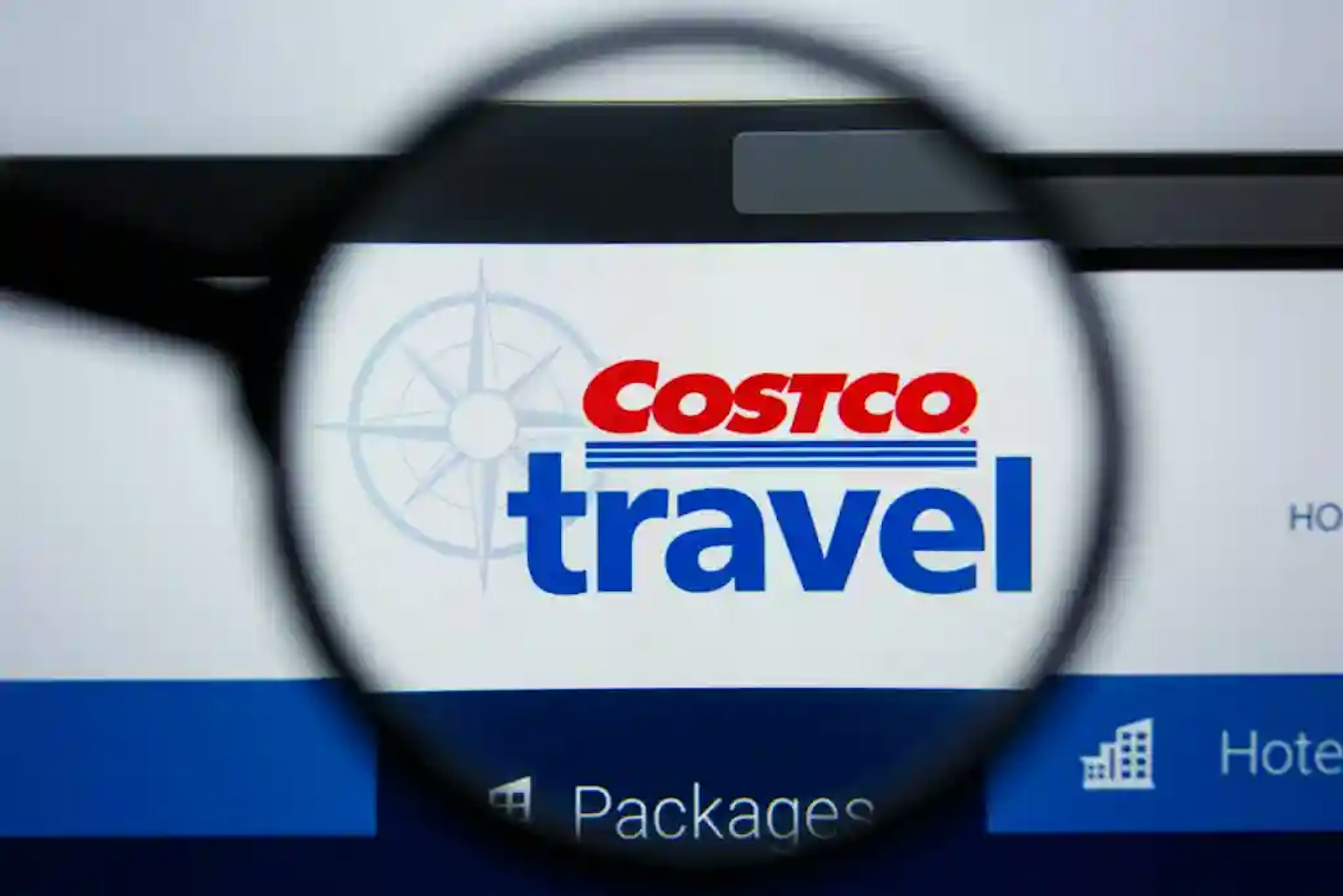
This series of articles about credit cards, points and miles, and budgeting for travel is brought to you in partnership with The Points Guy.
With travel costs skyrocketing these days, road trips are an affordable alternative. Whether driving up California’s Highway 1 or packing up for a cross-country trip, a road trip can be a great way to explore more destinations you would otherwise pass through on a plane or cruise. With the flexibility of a car, you can drive off the beaten path and experience unique places at a slower pace and more in-depth. The best part is that you can do it without breaking the bank.
If you bring the right credit card on your road trip, you can save money and greatly enhance your travel experience. In fact – with so many credit cards offering generous welcome bonuses, you can even offset the cost of your road trip with one of these cards. Bringing a credit card is essential, as it allows you to pay for roadside hotel stays, rental cars, gas and virtually in between. The expenses add up, so why not earn points that you can later use for another vacation?
The right credit card will even provide comprehensive travel insurance, so you’re covered in an emergency. If you’re renting a car, you’ll want a credit card that offers primary rental car insurance. You won’t have to purchase extra insurance from the rental agency or file a claim with your insurance company in case of an accident. If you’re road-tripping abroad, you’ll want a card that waives foreign transaction fees so you don’t pay up to 3% on your road trip purchases.
So what’s the best credit card to bring on a road trip? The answer depends on the type of rewards you want to earn, whether you want to pay an annual fee and which spending categories you want to earn the most points in. To help you make this decision, we’ve rounded up a list of the best credit cards for road trips. All the cards on this list waive foreign transaction fees and earn rewards in common road trip spending categories. A few distinguish themselves with high welcome bonuses and added travel protections. Here are our top picks:
Best credit cards for road trips
- Best overall: Chase Sapphire Reserve®
- Best for rental cars: Chase Sapphire Preferred® Card
- Best for fuel and dining: Costco Anywhere Visa® Card by Citi
- Best for roadside attractions: Capital One Venture Rewards Credit Card
- Best for no annual fee: Wells Fargo Autograph℠ Card
 Chase Sapphire Reserve © Wyatt Smith / The Points Guy
Chase Sapphire Reserve © Wyatt Smith / The Points Guy
Chase Sapphire Reserve®: Best overall
The Chase Sapphire Reserve® is the best overall credit card for a road trip. The card checks all the boxes, offering high rewards on road trip spending, comprehensive travel insurance and a statement credit you can apply towards travel expenses. Cardholders can earn 10 points per dollar on hotels and rental cars booked through Chase Ultimate Rewards – one of the highest rates any credit card offers.
If you opt to pay for travel and dining directly, you’ll still earn a respectable 3 points per dollar spent. Most importantly, the card offers comprehensive travel insurance crucial for road trips. Cardholders receive primary rental car insurance on U.S. and international bookings, covering up to $75,000 against theft and damage.
The Sapphire Reserve card also offers trip cancellation and interruption insurance, trip delay reimbursement, lost luggage reimbursement, emergency evacuation, and transportation. Granted, the last batch of benefits isn’t applicable when driving cross-country, but they can be useful if your trip includes flying portions.
The Sapphire Reserve can save you money on hotels during road trips, making it an ideal selection. You can save on hotel stays by booking through the Luxury Hotel & Resort Collection, which includes valuable perks like daily breakfast, room upgrades and $100 hotel credit at over 1000 hotels worldwide.
You’ll also get access to exclusive dining, sports, music and entertainment experiences with Reserved by Sapphire. This perk can help you immerse yourself in a destination through enriching cultural experiences. Lastly, the Sapphire card’s $300 annual statement credit can cover any travel purchase, helping you reduce your road trip expenses.
Welcome bonus: 60,000 bonus points after you spend $4000 in the first three months of account opening.
Rewards: Earn 10X points on Chase Dining purchases, hotels and car rentals through Chase Ultimate Rewards; 5X points on flights purchased travel through Chase Ultimate Rewards travel; 3X points on other travel and dining (including eligible delivery services, takeout and dining out); 1 point per dollar spent on everything else. Travel reward points begin after the $300 travel credit is used.
Travel benefits: Receive up to $300 in annual travel statement credits towards airfare, hotels and rental cars; complimentary airport lounge access through Priority Pass Select membership; Global Entry, TSA PreCheck or NEXUS application fee credit every four years; trip cancellation/interruption insurance; trip delay reimbursement; primary rental car insurance (up to $75,000 in the U.S. and abroad); lost luggage reimbursement.
Credit score: Excellent.
Annual fee: $550 ($75 per authorized user). See rates and fees.
Pros
- Up to 10 points per dollar on common road trip spending categories.
- The $300 annual travel credit can be applied towards rental cars, hotels or other road trip travel expenses.
- Chase Ultimate Rewards are versatile and easy to redeem for virtually any type of travel.
Cons
- High annual fee.
- $75 authorized user fee.
- Approval is subject to the Chase 5/24 rule (i.e., you won’t be approved if you’ve opened five accounts across any bank over the previous 24 months).
 Chase Sapphire Preferred © The Points Guy
Chase Sapphire Preferred © The Points Guy
Chase Sapphire Preferred® Card: Best for rental cars
If you’re taking a road trip in a rental car, you’ll want the Chase Sapphire Preferred® Card in your wallet. The card earns 5 points per dollar on travel booked through Chase Ultimate Rewards and 2 points per dollar on all other travel. When you pay for your rental with the Sapphire Preferred Card, your vehicle will be covered against theft and damage up to its full value. Simply decline the rental company’s collision insurance and charge the entire rental cost to your Sapphire Preferred Card.
Coverage is primary, meaning you won’t have to file a claim with your personal auto insurance at all. Considering rental car companies charge around $15 per day for collision insurance, you can save a lot of money during long road trips without giving up peace of mind. Best of all, this coverage is valid on vehicle rentals in both the U.S. and abroad.
Welcome bonus: Earn 60,000 bonus points after spending $4000 in the first three months of account opening.
Rewards: Earn 5X points on travel purchased through Chase Ultimate Rewards (excluding hotel purchases that qualify for the $50 Annual Ultimate Rewards hotel credit); 3X points on dining at restaurants, including eligible delivery services, takeout and dining out; 3X points on online grocery purchases; 3X points on select streaming services; 2X points on all other travel; 1X on other purchases.
Travel benefits: Primary rental car insurance, annual $50 Ultimate Rewards hotel credit, trip cancellation/interruption insurance, trip delay reimbursement, travel and emergency assistance services and baggage delay insurance.
Credit score required: Good to Excellent.
Annual fee: $95. See rates and fees.
Pros
- High point earnings on dining.
- $50 annual travel credit.
- Primary rental car insurance, valid on domestic and most international rental cars.
Cons
- Doesn’t earn bonus points at gas stations.
- The $50 annual hotel credit is only valid on Chase Ultimate Rewards bookings and doesn’t earn bonus points.
- Subject to Chase’s 5/24 rule: You won’t be approved if you’ve opened five credit cards at any bank in the past 24 months).
 Costco Anywhere Visa® Card by Citi is a great way to maximize road trip purchases © Shutterstock
Costco Anywhere Visa® Card by Citi is a great way to maximize road trip purchases © Shutterstock
Costco Anywhere Visa® Card by Citi: Best for fuel and dining
Fuel and dining are big expenses on longer road trips and the Costco Anywhere Visa® Card by Citi is a great way to maximize those purchases. Plenty of credit cards offer bonus rewards on gas, but the Costco Anywhere card includes EV charging in its cash-back bonus. So whether you’re driving an electric car or a good old-fashioned gas guzzler, you’ll earn a generous 4% cash-back bonus on the first $7000 spent annually.
Cardholders also earn 3% cash back at restaurants and eligible dining. If your road trip includes a stop at Costco, you’ll enjoy 2% cash back on those purchases. With no annual fee, outstanding rewards and worldwide car rental insurance, the Costco Anywhere Visa is an excellent choice for fuel and dining purchases.
Welcome bonus: None.
Rewards: Earn 4% on eligible gas and EV charging for the first $7000 per year (1% after that); 3% on restaurants and eligible travel, including Costco travel; 2% cash back on Costco purchases; 1% cash back on all other purchases.
Travel benefits: Worldwide car rental insurance, no foreign transaction fees.
Credit score required: Excellent.
Annual fee: None. See rates and fees.
Pros
- High bonus rewards on both gas and EV charging.
- Provides worldwide car rental insurance.
- No annual or foreign transaction fees.
Cons
- No welcome bonus.
- 4% bonus on gas and EV charging is limited to the first $7000 spent.
- Costco membership is required.
 Capital One Venture Rewards Credit Card © The Points Guy
Capital One Venture Rewards Credit Card © The Points Guy
Capital One Venture Rewards Credit Card: Best for roadside attractions
The Capital One Venture Rewards Credit Card is the best card for roadside attractions. Most other cards earn just 1 point per dollar spent on roadside attractions. However, the Venture card earns 2 miles per dollar all purchases (including any roadside attractions), plus 5 miles per dollar on hotels and rental cars booked through Capital One Travel. It’s a very rewarding card if you want to earn elevated rewards without tracking category bonuses on multiple credit cards.
Capital One cardholders can access select music and sporting events through Capital One Entertainment. You can access pre-sale event tickets and exclusive reservations at award-winning restaurants through Capital One Dining. This can make long road trips much more enjoyable if you want to make pitstops for fun events and unique dining experiences.
Welcome bonus: 75,000 bonus miles after spending $4000 in the first three months of account opening.
Rewards: Earn 5X miles on hotels and rental cars booked through Capital One Travel; 2X miles on all other purchases.
Travel benefits: Six months complimentary membership for The Cultivist, two annual visits to Capital One and Plaza Premium lounges, $100 credit for Global Entry or TSA PreCheck, Hertz Five Star status, travel accident insurance and rental car insurance.
Credit score: Excellent.
Annual fee: $95. See rates and fees.
Pros
- Earns a minimum of 2 miles per dollar spent on all purchases.
- Includes travel accident insurance and primary rental car insurance when you pay with the Venture card.
- Points are easily redeemable towards travel purchases or transferable to 18 airline and hotel loyalty programs.
Cons
- Complimentary The Cultivist membership is only valid for six months.
- Capital One pulls your credit from all three bureaus when you apply for a card.
 The Wells Fargo Autograph Card © The Points Guy
The Wells Fargo Autograph Card © The Points Guy
Wells Fargo Autograph℠ Card: Best for no annual fee
The Wells Fargo Autograph℠ Card is an excellent choice if you want a credit card that rewards your road trip purchases but charges no annual fee. Cardholders earn 3 points per dollar on travel, gas, dining, transit and streaming purchases – all of which are common expenses during road trips.
Despite having no annual fee, the Wells Fargo Autograph℠ Card provides valuable protection when you hit the road. The card is unique in offering primary rental car insurance, which is typically limited to premium credit cards with annual fees of $95 or higher. The card’s cell phone protection is also unusual for a card with no annual fee.
Cardholders who charge their cell phone bill to the Autograph card will receive up to $600 in cell phone protection, subject to just a $25 deductible. With these protections in place, you can hit the road knowing your most valuable possessions are covered in case of damage or theft.
Welcome bonus: Earn 20,000 bonus points when you spend $1000 in the first three months.
Rewards: Earn 3X points on travel, gas, restaurant, transit and popular streaming purchases; 1X points on all other purchases.
Travel benefits: Secondary rental car insurance in the U.S., primary rental car coverage abroad, travel and emergency services assistance, cell phone protection (up to $600 per year).
Credit score: Good to Excellent.
Annual fee: $0. See rates and fees.
Pros
- Earns 3X points on common road trip spending like restaurants, gas, rental cars and hotels.
- Primary rental car coverage abroad and secondary coverage in the U.S.
- A generous intro APR, in case you go over your travel budget and need to finance extra expenses.
- No annual fee.
Cons
- Low welcome bonus.
- Points are worth just one cent each and not transferable to other loyalty programs.
 Road trips that lead to beautiful places © iStockphoto / Getty
Road trips that lead to beautiful places © iStockphoto / Getty
Who should get a credit card for road trips?
Anyone who is comfortable using credit cards responsibly should consider getting a credit card for road trips. Credit cards can be a great way to earn rewards on travel expenses, like dining, gas and hotel expenses. Many travel credit cards also offer travel insurance so you can hit the road knowing you’re covered in case of accidents.
With the right credit card, you can even channel your road trip expenses toward earning a substantial welcome bonus. For example, the Capital One Venture Card offers 75,000 bonus miles after spending $4000 in the first three months of account opening. You can use this bonus to cover $750 in travel charges, including rental cars or hotel charges incurred during road trips. Alternately, you can transfer these points to Wyndham Rewards at a 1:1 ratio to book hotels starting at just 7500 points per night.
How to choose the best credit card for a road trip
When choosing the best credit card for a road trip, it’s important to consider a few key factors. First, you should look for a card that offers elevated rewards on common road trip spending categories: Dining, fuel, hotels and entertainment. Additionally, you should look for cards with no foreign transaction fees if you plan to travel outside the country. That way, you won’t incur up to a 3% fee when using your credit card abroad.
If you’re renting a car for your road trip, you’ll want a credit card that offers primary rental car insurance. That way, you won’t have to pay a daily fee of around $15 for coverage through the rental agency or get your own insurance involved in case of an accident.
 Enjoying a summer road trip with a stop on the beach © Milko / Getty
Enjoying a summer road trip with a stop on the beach © Milko / Getty
FAQ
What’s the best credit card for road trips?
The best credit card for road trips depends on your travel needs and preferences. Some of the most popular cards for road trips include the Chase Sapphire Preferred, the Capital One Venture and the Costco Anywhere Visa Card. Each of these cards offers great rewards and travel protections to help you save money on your next road trip.
What should you look for in a credit card for road trips?
When choosing a credit card for road trips, you should look for a generous welcome bonus, high recurring rewards on travel and dining purchases, rental car insurance and no foreign transaction fees on purchases made abroad.
Is it beneficial to bring a credit card on road trips?
Bringing a credit card on road trips can be beneficial, as it provides you with a secure payment method. Some credit cards also provide travel and purchase protection that you would otherwise need to pay for. All you have to do to be covered is pay for your trip with the credit card. Travel also comes with high expenses and a credit card can help you earn rewards that you can then utilize for future trips.
 Headed on a road trip with the best credit cards in tow © Kar-Tr / Getty
Headed on a road trip with the best credit cards in tow © Kar-Tr / Getty
What’s the best credit card for rental cars?
The best credit card for rental cars is one that earns high rewards and provides primary rental car insurance. The Chase Sapphire Preferred is an excellent choice because it earns up to 5 points per dollar spent on rental car bookings and provides primary rental car insurance. If your vehicle is involved in an accident, Chase covers up to the actual cash value of most rented cars. With just a $95 annual fee, the Sapphire Preferred is also an excellent value.
Is a credit card or debit card better for international road trips?
A credit card is better for international road trips than a debit card. Debit cards generally don’t earn points or offer rental car insurance. Credit cards offer more consumer protection against fraud and theft. The cards on this list waive foreign transaction fees, while most debit cards charge up to 3%.
Which credit card should I use for international road trips?
For international road trips, you should use a credit card that earns high rewards on gas and dining and offers primary rental car insurance. While many credit cards offer insurance when you pay for your rental car, not all of them apply to rentals made abroad. Be sure to read your credit card’s terms and conditions to ensure that the country you’re renting a vehicle in is covered.
Editorial disclaimer: Opinions expressed here are the author’s alone, not those of any bank, credit card issuer, airline or hotel chain, and have not been reviewed, approved or otherwise endorsed by any of these entities.



